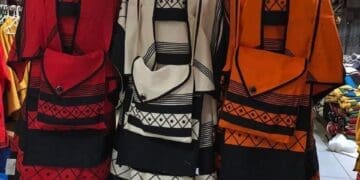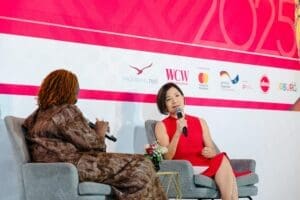African women entrepreneurs have called for financial systems that truly recognise and serve women-led businesses, warning that the current lending landscape still excludes many from scaling their ventures.
The call came during this week’s Women Creating Wealth Summit, hosted by the Graça Machel Trust in Johannesburg.
The three-day event brought together more than 200 women entrepreneurs from 12 African countries to discuss challenges and solutions in accessing finance and growing their businesses.
Entrepreneur Sinotando Ngubane, founder of Unami Collective, noted that the barriers are less about competence and more about structure.
“We don’t want it to be us versus the financial institutions. It’s us versus the problem, which is women not being able to access finance,” she said.
Ngubane added that she has often found more opportunities abroad than locally, as foreign institutions are more open to funding digital start-ups run by young women.
The Graça Machel Trust launched the Women Creating Wealth initiative in 2019 to support female entrepreneurs through mentorship, business development training and investor connections. Since its inception, the programme has supported hundreds of women in industries including agriculture, manufacturing and the creative sector.
Entrepreneurs like Kahiso Rapetwa, founder of Kahiso & Company, said financial inclusion is about more than just funding.
“Capital represents belief. When women receive funding, it means someone trusts their vision. That confidence allows us to grow our businesses and create jobs,” she explained.
Delegates at the summit agreed that while there has been progress in promoting women’s participation in the economy, many still face difficulties in securing loans. Rigid collateral requirements, limited credit histories and a lack of tailored financial products remain significant obstacles for women-owned enterprises.
Senegalese entrepreneur Betty Penn said the programme’s support helped her expand her operations.
“Three years ago, I had ideas but no strategy. This programme helped me find my footing and pursue growth confidently,” she said.
Representatives from the European Union delegation, one of the programme’s partners, said the initiative had already helped women access close to R1 million in new investment capital.
“When women rise, communities rise with them,” said Rosanela Selebi from the EU delegation. “Unlocking women’s potential in entrepreneurship strengthens families and drives inclusive growth.”
Economists and development experts attending the event noted that financial systems need to adapt to recognise new forms of business credibility, such as digital records, alternative collateral, and consistent transactional data. These measures could open formal funding channels to thousands of women-owned SMEs currently operating in the informal economy.
The Trust and its partners pledged to expand the programme’s reach in 2026, focusing on integrating women entrepreneurs into regional trade and green economy projects.
lazola@vutivibusiness.co.za






















































